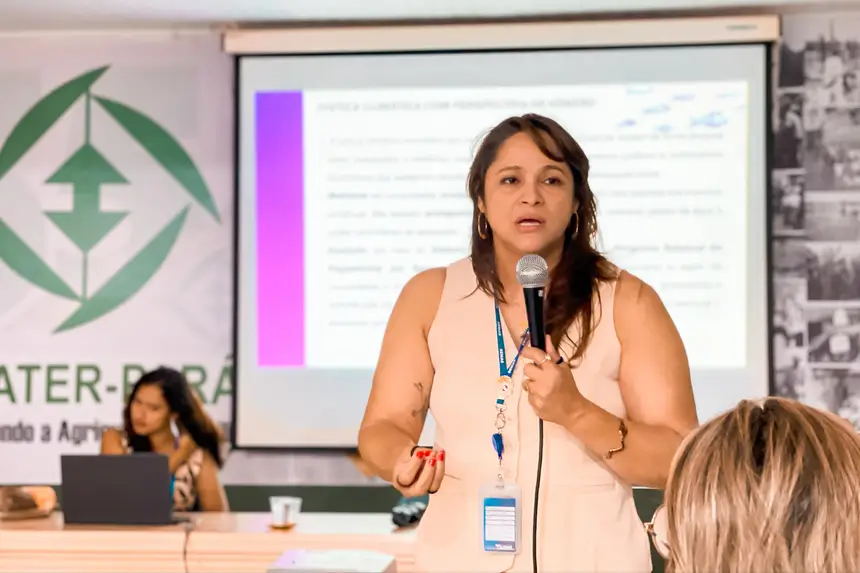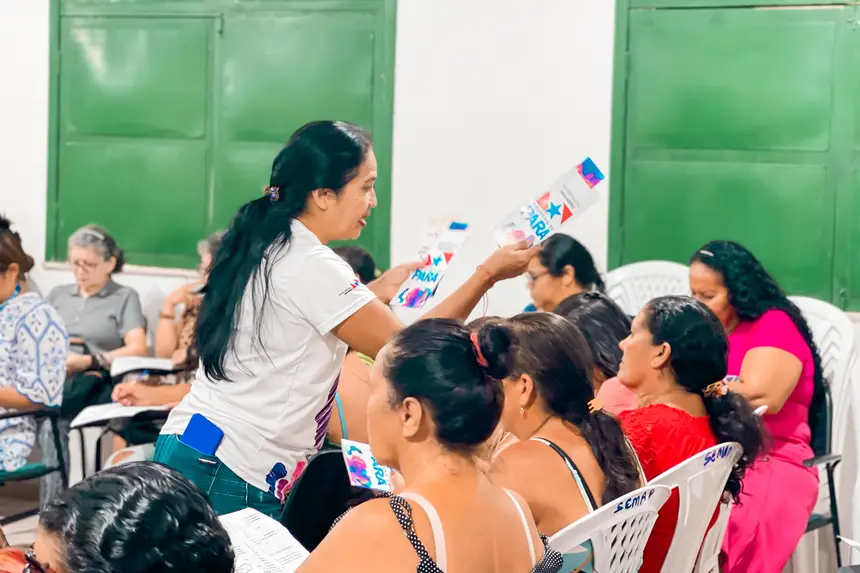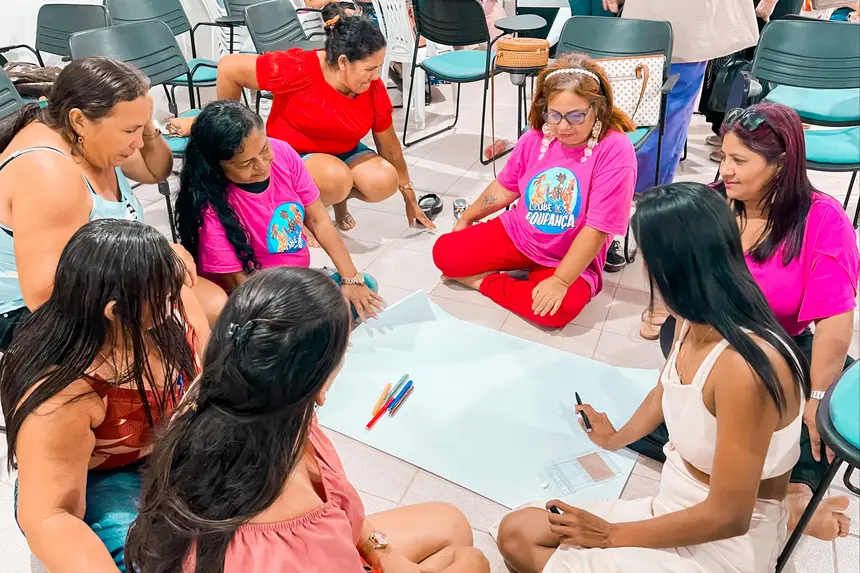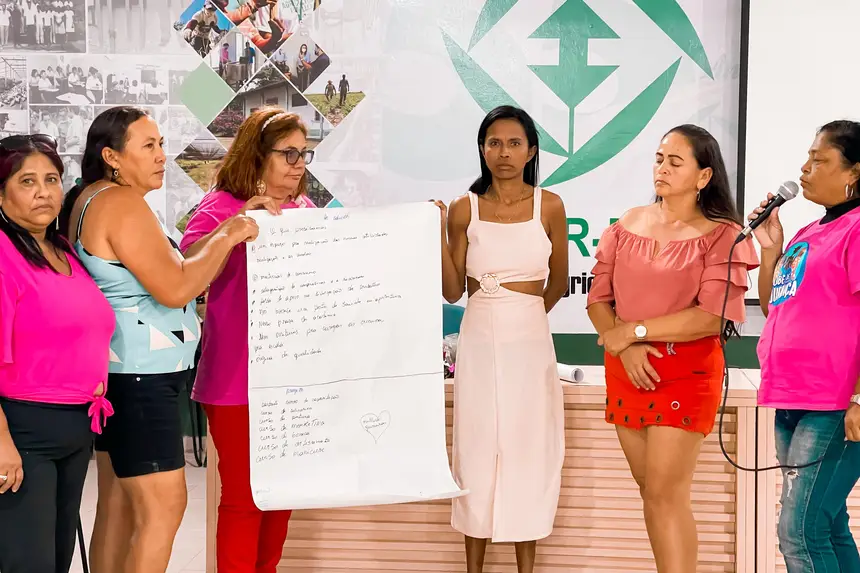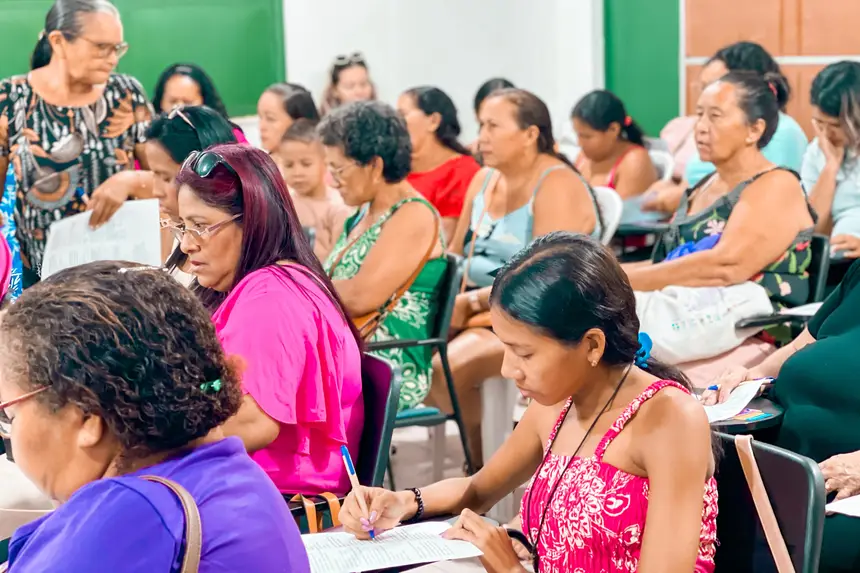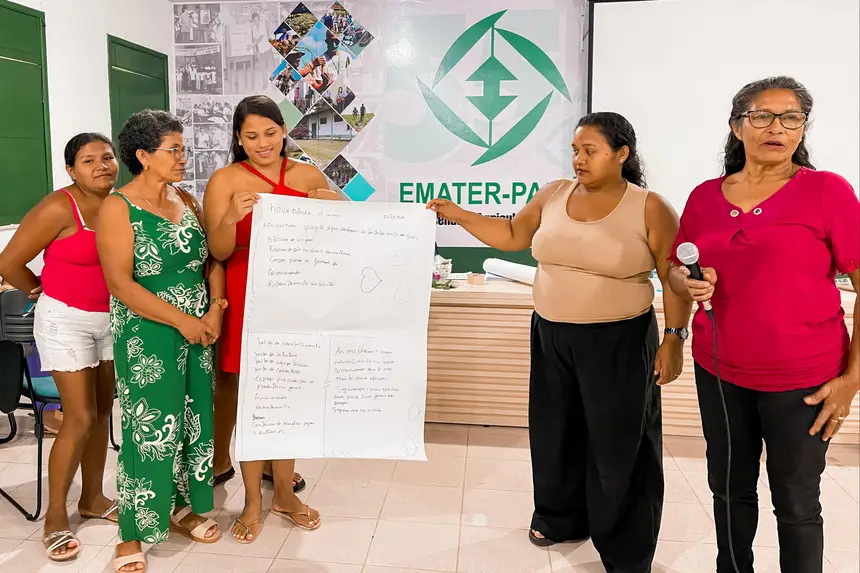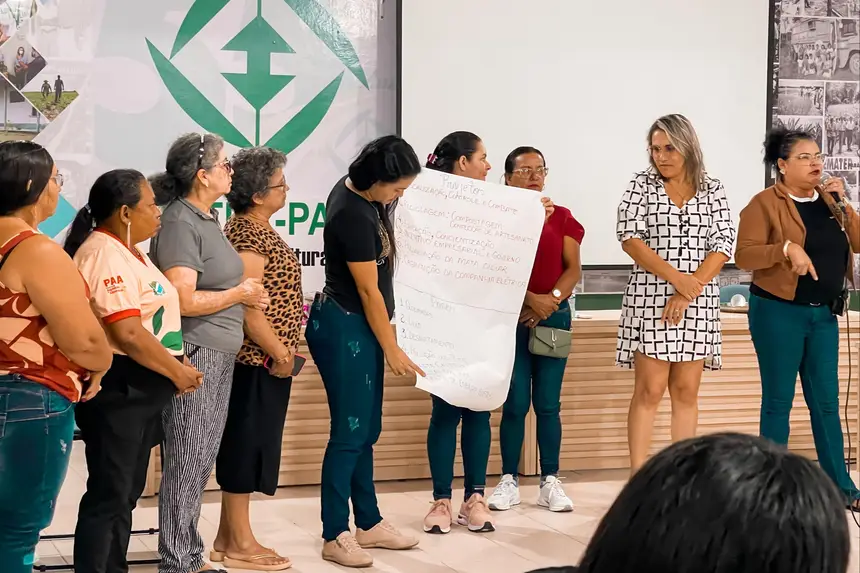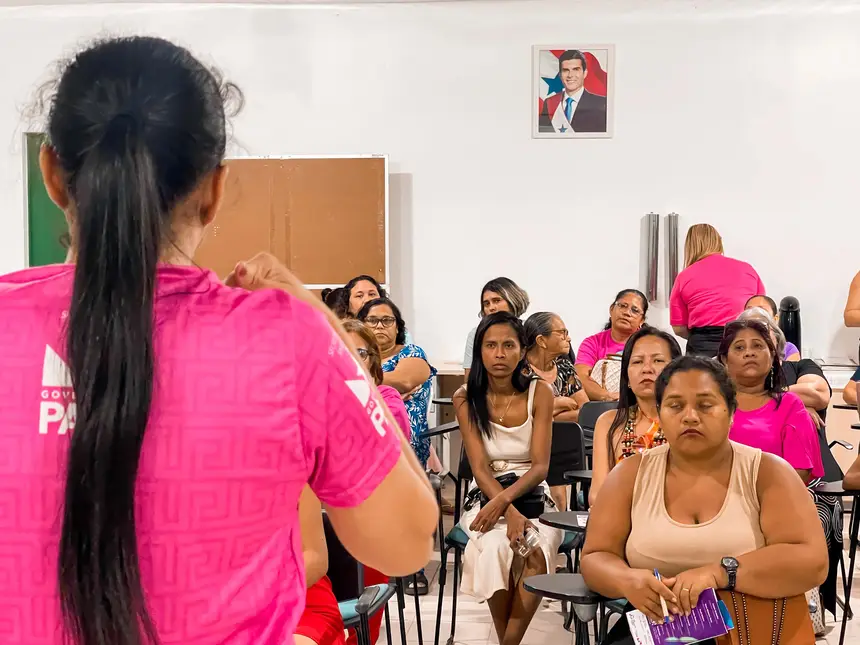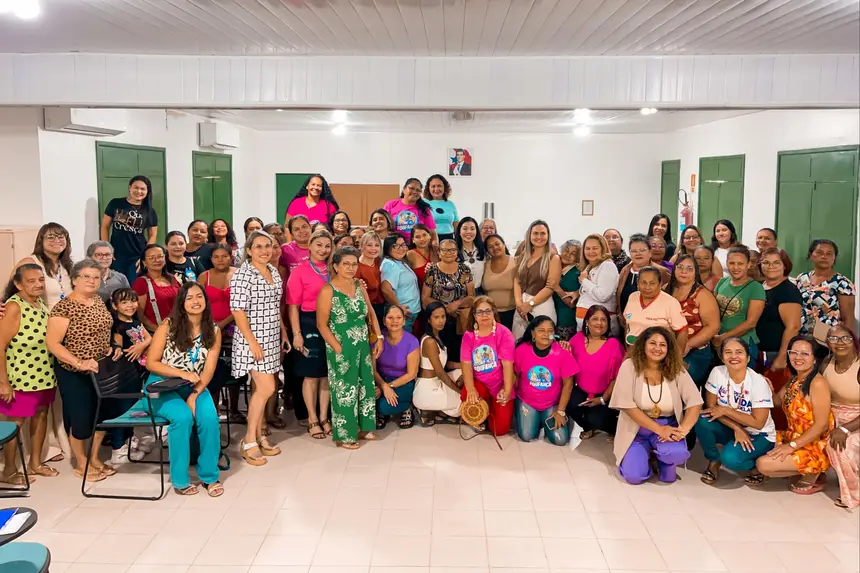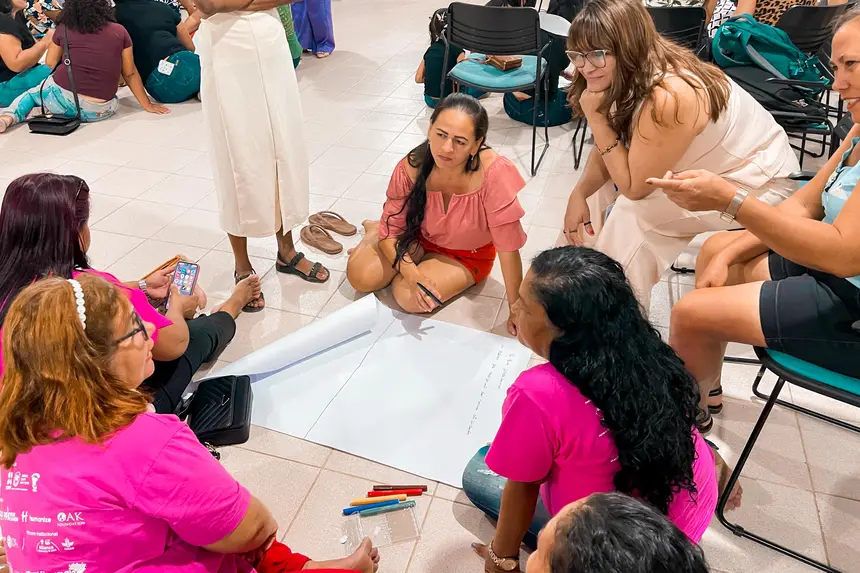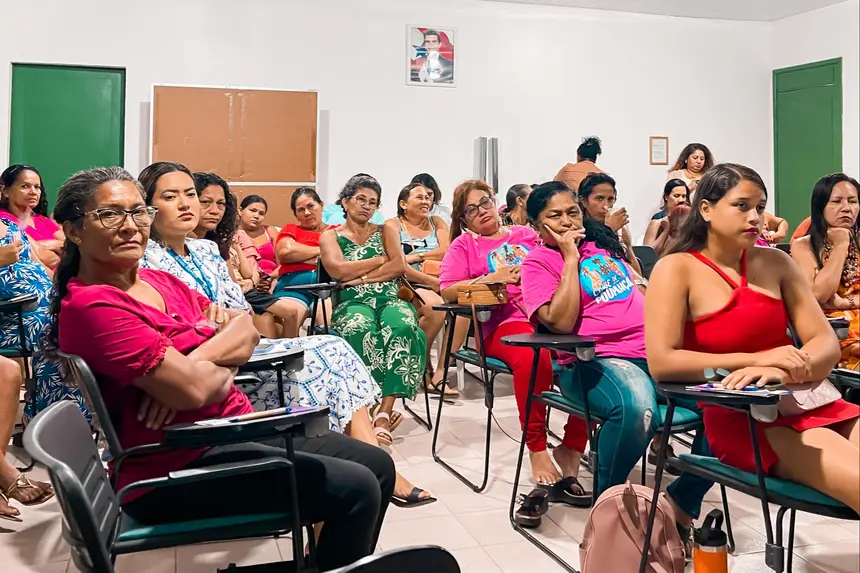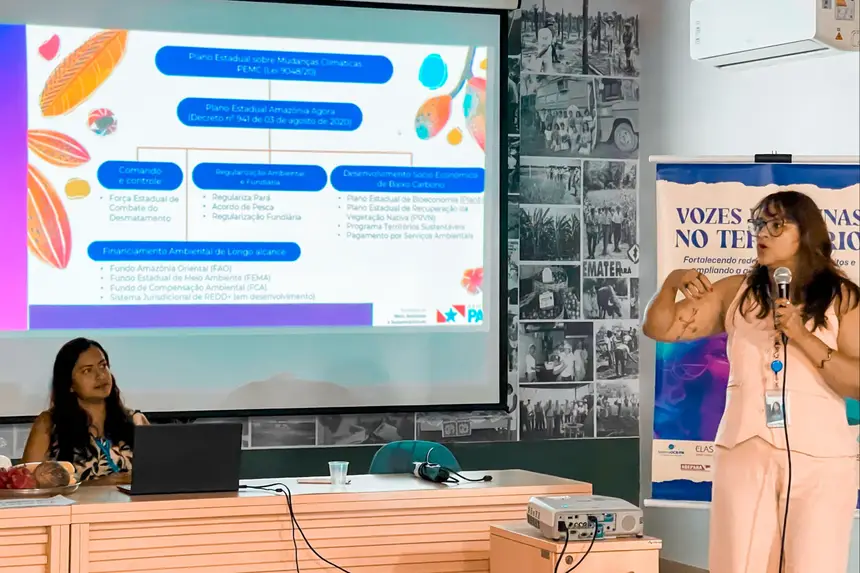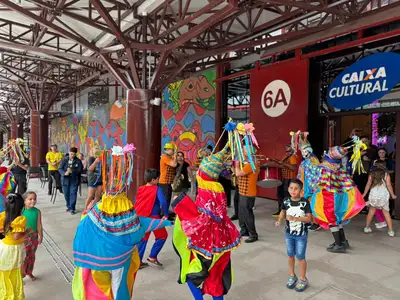Female leaders discuss climate justice in Bragança
Women are the most affected by the climate crisis and, at the same time, are on the front lines of resistance
Bragança hosted the Meeting of Women's Voices in the Territory – Climate Justice, Bioeconomy, and Blue Economy, promoted by the State Secretariat for Women (Semu). The event, held last Tuesday, brought together representatives from traditional communities, shellfish gatherers, farmers, teachers, and local leaders to discuss the impacts of climate change and propose collective solutions for the Amazon.
Women are the most affected by the climate crisis. In addition to balancing family care with the search for livelihood, they depend directly on the territory to ensure survival. In their daily lives, they deal with fish scarcity, changes in harvests, extreme heat, drought of rivers, and the force of tides. At the same time, they are on the front lines of resistance, transforming traditional knowledge into survival alternatives and defense of the territory.
The meeting is part of the strategy of the Government of Pará, through Semu, to strengthen female leadership in climate justice and bioeconomy, opening new opportunities within communities and offering support to women who already produce but still lack the structure to expand their projects, strengthening female protagonism and the local economy.
During the opening, the State Secretary for Women, Paula Gomes, emphasized the urgency of the agenda: “We are here in Bragança, in this very important construction, talking about climate justice. Women are the ones who suffer the most: they face double and even triple shifts, violence, drought, and often need to travel long distances in search of water. What they need now are opportunities, support, and public policies that strengthen their actions and transform their knowledge into collective solutions for their communities.”
The program included a lecture from the Secretary of Environment and Sustainability (Semas) and working groups, where participants shared challenges from their territories and presented experiences and joint proposals. These contributions will serve as a basis for projects aligned with the guidelines of the state policy on climate change, bioeconomy, and sustainable territories.
For Lidiane Amorim, a shellfish gatherer from the island of Ajuruteua, institutional support is essential: “The State Secretariat deserves congratulations for this encouragement and commitment. This help strengthens us to grow and achieve our goals and projects.”
Teacher Neci de Carvalho highlighted the importance of the dialogue space: “This event was fundamental for women to talk about their pains and seek solutions to their problems. The Women’s Secretariat acts as a bridge between women from marine reserves and the State Government.”
The Meeting of Women's Voices in the Territory – Climate Justice, Bioeconomy, and Blue Economy reaffirms the protagonism of women in defending the Amazon. Semu strengthens leaders who, in their daily lives, transform traditional knowledge into concrete actions for caring for the environment, preserving natural resources, and sustainable development of communities. Women who care for the land, water, and life, showing that true change begins in each territory.
Text: Gabryella Pompeu (Ascom/Semu)


